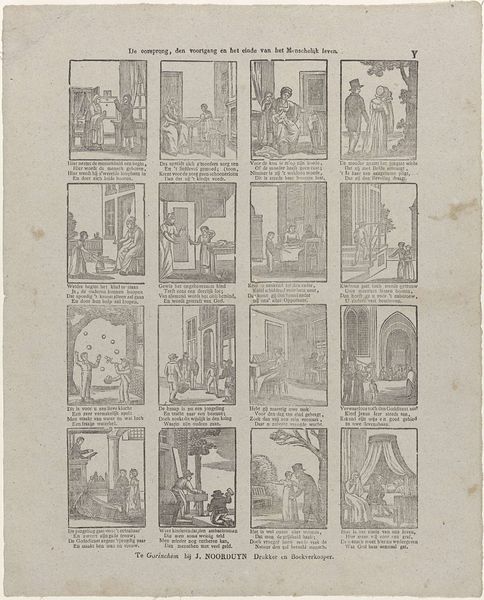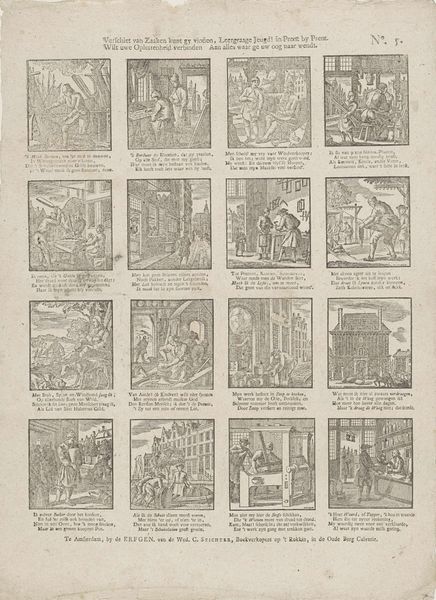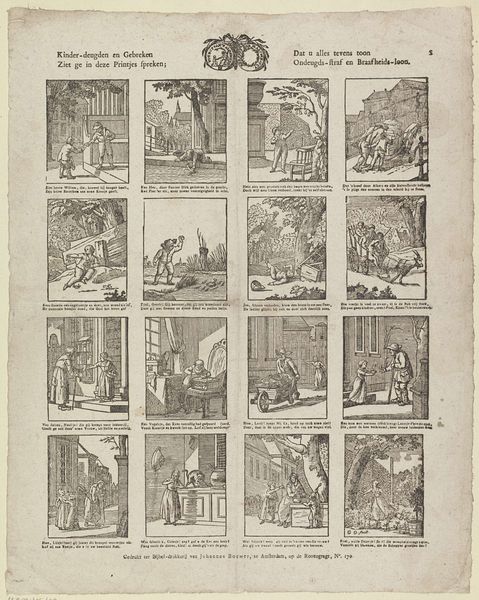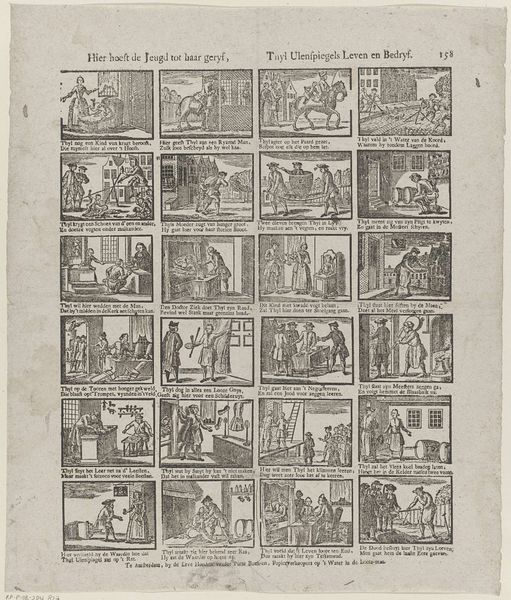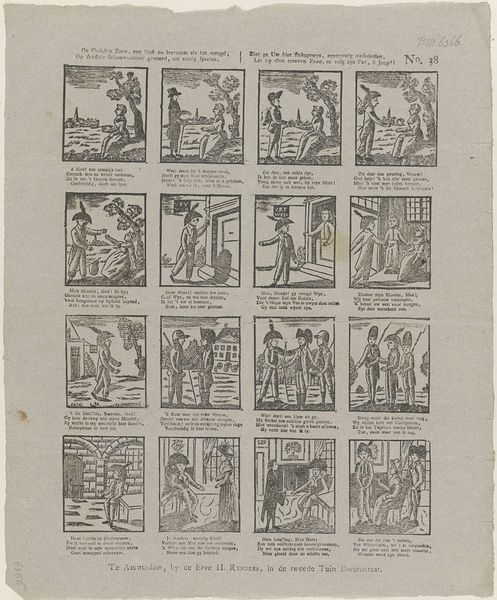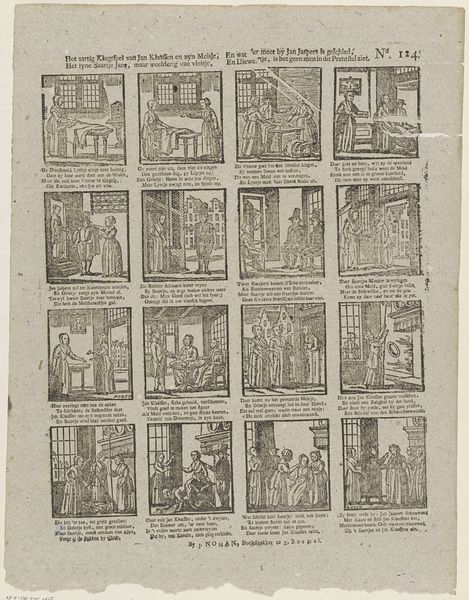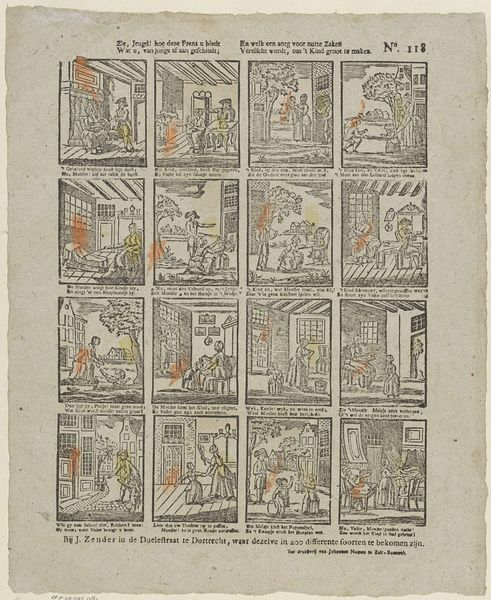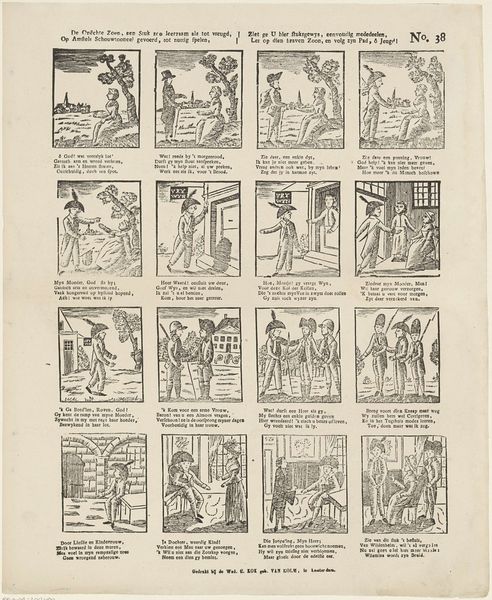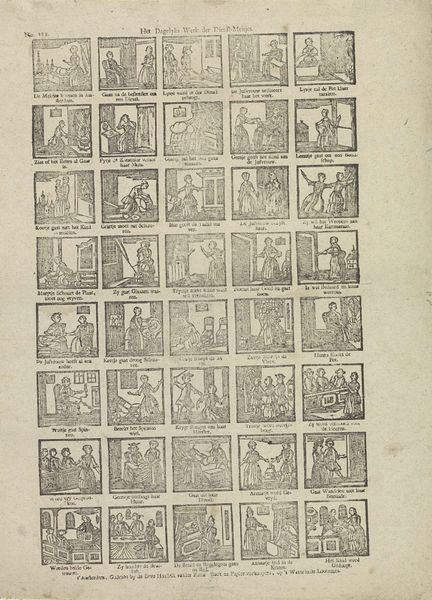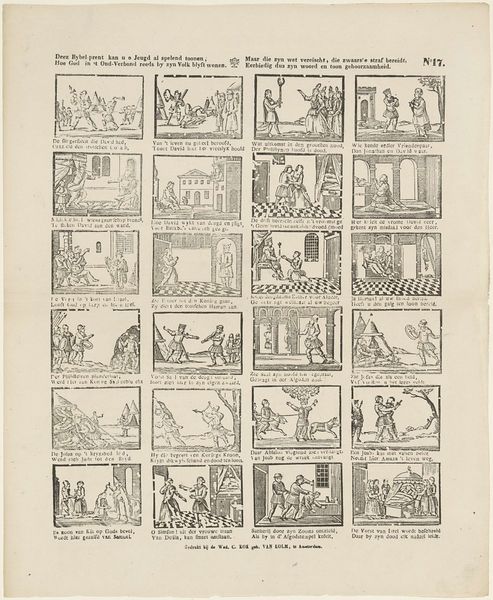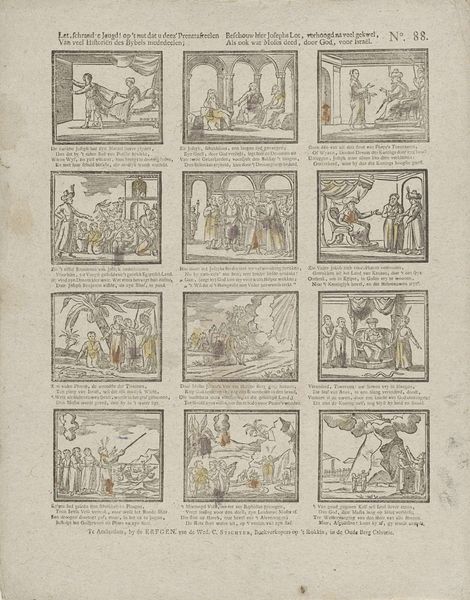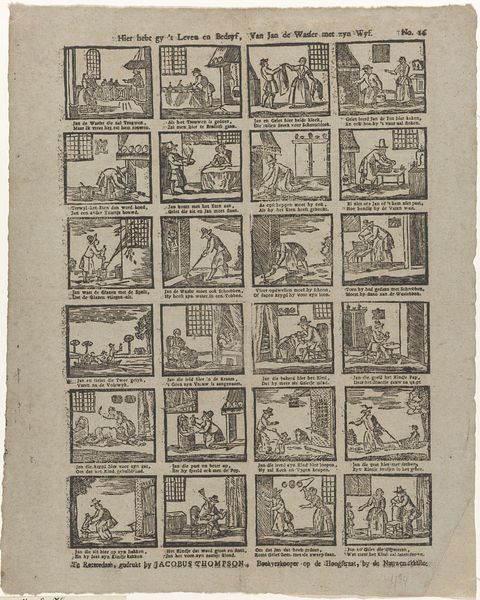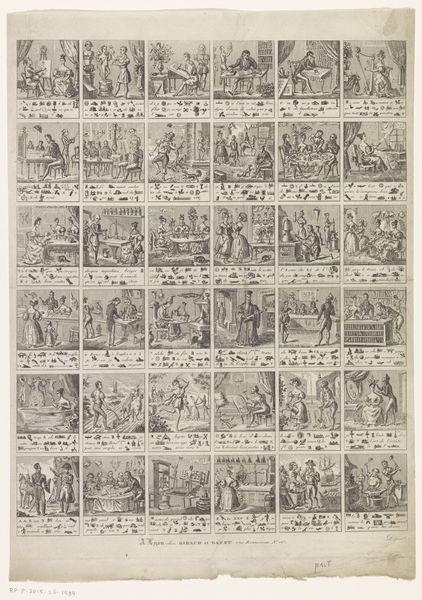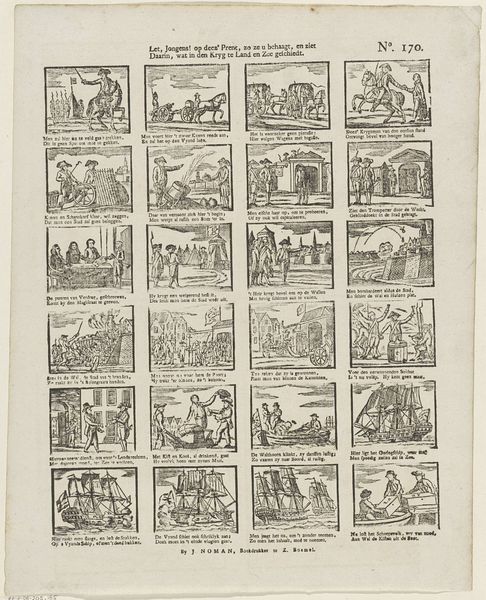
Den oorsprong, voortgang en het einde van het menschelijk leven 1819 - 1840
0:00
0:00
alexandercranendoncq
Rijksmuseum
print, engraving
#
narrative-art
# print
#
romanticism
#
genre-painting
#
history-painting
#
engraving
Dimensions: height 413 mm, width 330 mm
Copyright: Rijks Museum: Open Domain
Curator: Here we have a print from between 1819 and 1840 by Alexander Cranendoncq, titled “Den oorsprong, voortgang en het einde van het menschelijk leven.” It’s an engraving. What do you make of it? Editor: Well, immediately, the format reminds me of those instructive broadsides – the kind you might see pinned up in a schoolroom. Grim, though. Very deterministic. Curator: Exactly. The narrative unfolds across these little vignettes—birth, education, courtship, work, aging, death... Cranendoncq's essentially giving us a visual and moral guide to life's stages. Think of it as a secular history painting rendered for the masses. Editor: Secularity interests me. It’s crafted, printed. This isn’t some unique artistic creation, but a reproducible object. Each scene meticulously rendered; the making is where so much meaning hides. Look closely. The labor involved in these repetitive stages, a clear parallel. Curator: That’s a brilliant point about the labor reflected in the image's creation. Also, observe how the framing of each scene shapes its meaning. Childhood is associated with interiors, and maturation moves us outwards and upwards, only to again see us back within a confined death bed at the close of the engraving. Editor: So much packed into each compartment, almost like the constraints society imposes... family, employment. No leisure, and minimal tools… this almost makes you consider, what type of person did it require to build such small panels on mass. Curator: I find that it serves as a microcosm of social history, telling us about the values and structures of early 19th-century Dutch society. It's both an artistic expression and a cultural document. Editor: Yes, and seeing all that represented as repeatable, manufacturable even. It’s more social commentary than just depiction of “life.” Curator: Precisely. Thank you. Editor: Pleasure.
Comments
No comments
Be the first to comment and join the conversation on the ultimate creative platform.
